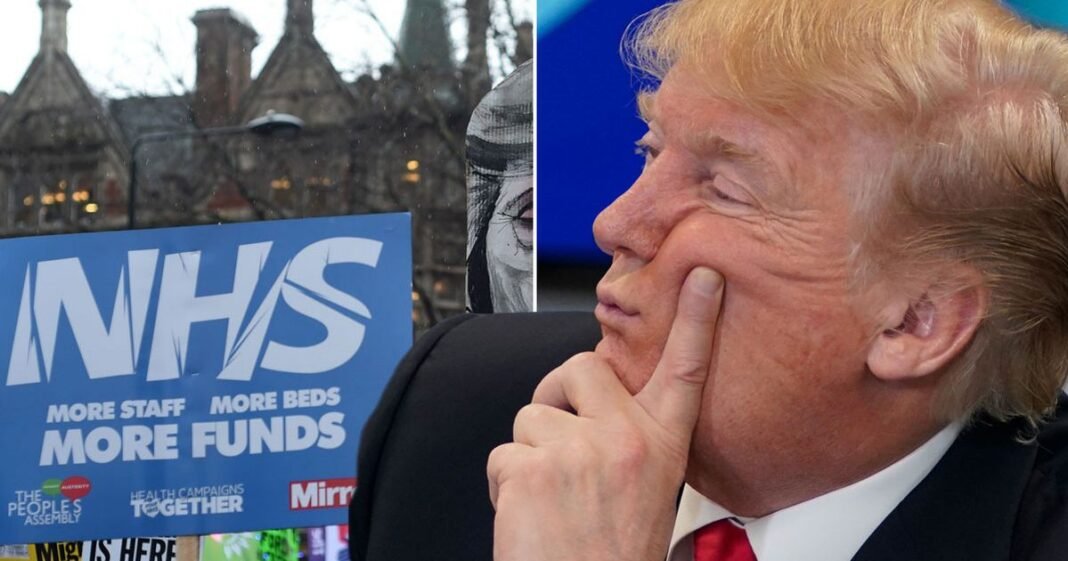International activists have cautioned that Donald Trump and major pharmaceutical companies are exerting pressure on Britain over drug pricing. Global Justice Now has urged the UK government not to yield to Trump’s threats of imposing substantial tariffs if the NHS does not increase spending on medications, fearing financial strain on the healthcare system.
AstraZeneca, a British pharmaceutical company, recently announced a rise in its investment in a US manufacturing facility to £3.3 billion, aligning with efforts to enhance critical drug production in the United States. This move followed a UK regulatory ruling that found no evidence of anti-competitive behavior by AstraZeneca and other pharmaceutical giants threatening to withdraw from Britain en masse.
In an article for the Mirror, Global Justice Now’s director, Nick Deardon, highlighted Trump’s criticisms of other countries as “freeloaders” and questioned the disparity in drug prices between Americans and Britons. Deardon emphasized the financial burden faced by many Americans due to exorbitant drug costs, suggesting a need for government intervention against pharmaceutical industry greed.
Concerns have been raised by NGOs like the Balanced Economy Project and Just Treatment, prompting a call for the UK Competition and Markets Authority (CMA) to investigate potential anti-competitive practices within the pharmaceutical sector. The CMA’s response indicated no direct evidence of collusion among pharmaceutical companies in their public statements.
The NHS’s strong bargaining power historically allowed it to negotiate lower drug prices compared to private hospitals in the US. However, reports suggest that the UK government is considering raising the NHS’s “value for money” threshold by 25% in discussions with the Trump administration to avert trade tariffs.
Despite the ongoing negotiations, concerns have been raised regarding the impact of higher drug prices on NHS resources, potentially limiting investments in staff and infrastructure. The Lancet previously cautioned that the current drug price threshold set by the National Institute for Health and Care Excellence (NICE) might already be too high, affecting healthcare spending priorities.
In summary, the debate over drug pricing in Britain involves a complex interplay between government policies, industry interests, and public health concerns. The outcome of these negotiations could have significant implications for the accessibility and affordability of medications within the UK healthcare system.

